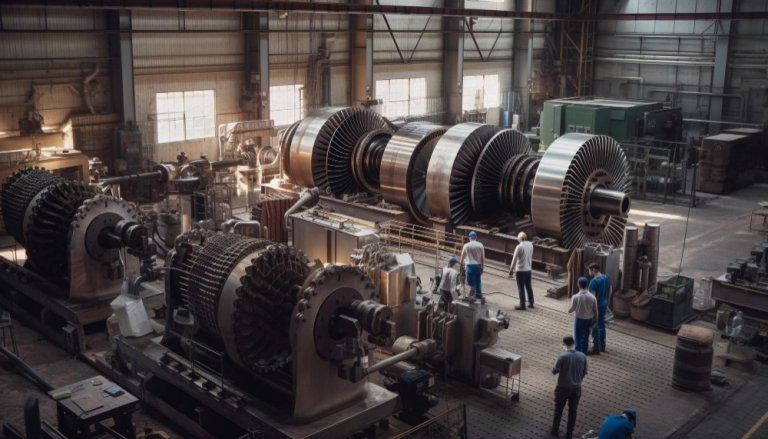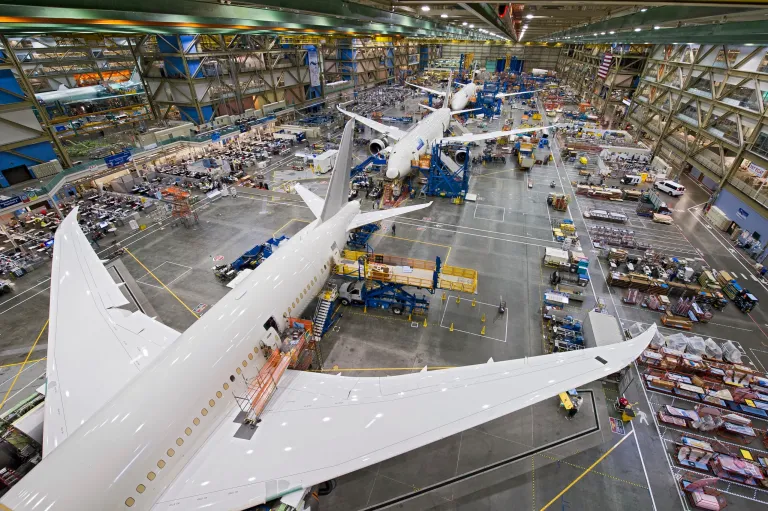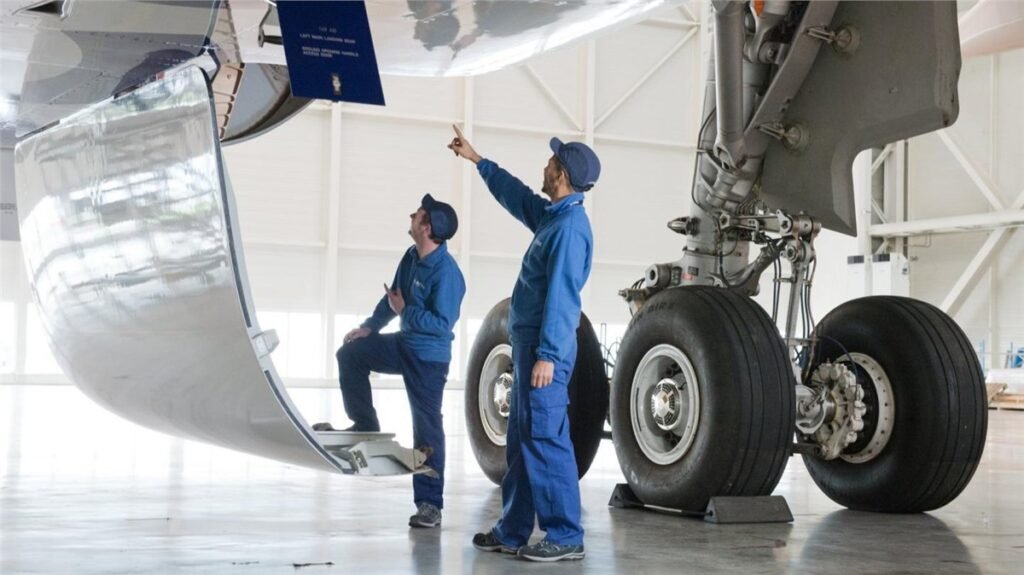Explore essential insights on Aero Parts Supplier Selection to ensure reliability and safety in aviation. Learn how to choose the best suppliers with our comprehensive guide on quality, inventory, and technical support.
Section I. Introduction
- Overview of the Aero Parts Industry
- Summary: Discuss the complexity and critical nature of the aero parts industry, emphasizing the importance of selecting the right supplier for safety, reliability, and efficiency.
- The Importance of Reliable Suppliers
- Summary: Explain why choosing a reliable aero parts supplier is crucial for the aviation industry, touching on safety, cost-effectiveness, and operational efficiency.
Section II. Understanding Aircraft Parts Distribution
- The Aircraft Parts Supply Chain
- Summary: Provide an overview of the supply chain for aircraft parts, from manufacturers to end-users, and the role of distributors.
- Challenges in Aircraft Parts Distribution
- Summary: Discuss common challenges faced by the industry, including logistics, quality control, and regulatory compliance.
Section III. Criteria for Selecting Aero Parts Suppliers
- Quality Assurance and Certification
- Summary: Highlight the importance of quality certifications (e.g., FAA, EASA) in ensuring component reliability and safety.
- Inventory and Availability
- Summary: Discuss the significance of a supplier’s ability to offer a wide range of in-stock parts and their impact on maintenance timelines.
- Technical Support and Expertise
- Summary: Explain how supplier expertise and technical support can significantly affect the operational success of aviation components.
Section IV. The Role of Online Aircraft Parts Stores
- Advantages of Online Sourcing
- Summary: Outline the benefits of using online platforms for aircraft parts procurement, including increased accessibility and comparison options.
- Evaluating Online Aircraft Parts Stores
- Summary: Provide criteria for assessing the reliability and credibility of online aircraft parts stores.
Section V. Case Studies and Success Stories
- Real-World Examples
- Summary: Share success stories of airlines or maintenance operations that have benefited from strategic supplier partnerships.
- Lessons Learned
- Summary: Discuss key takeaways from the case studies, focusing on best practices in supplier selection and relationship management.
Section VI. Conclusion
- Future Trends in Aero Parts Supply
- Summary: Offer insights into future trends in the aerospace supply chain and how companies can prepare for these changes.
- Final Thoughts on Supplier Selection
- Summary: Recap the importance of careful supplier selection and its impact on the aviation industry’s success.

Introduction to Aero Parts Supplier Selection
The aero parts industry is a critical component of the aviation sector, where precision and reliability are not just goals but necessities. The process of selecting the right aero parts supplier is a complex decision that impacts every aspect of an aircraft’s operation, from safety to efficiency. This decision goes beyond cost and availability, delving into the realms of quality assurance, regulatory compliance, and long-term reliability. In this context, the importance of choosing a reliable supplier cannot be overstated, as it directly influences the operational readiness and safety of the aircraft.
The Critical Role of Aero Parts in Aviation Safety
The aviation industry’s reliance on high-quality aircraft parts distribution is undeniable. With the safety of passengers and crew at stake, the margin for error in selecting aerospace components is virtually non-existent. This high-stakes environment makes the choice of a reliable aerospace components supplier a paramount concern for airlines and maintenance operations. The right supplier ensures not only the availability of airplane spare parts for sale but also guarantees that these components meet the stringent standards required for commercial aviation spares.
Navigating the Online Aircraft Parts Marketplace
The advent of online aircraft parts stores has significantly altered the landscape of aircraft parts procurement. These platforms offer unparalleled access to a wide range of parts, from airplane tires to critical main components, facilitating a more streamlined and efficient procurement process. However, the convenience of online shopping brings with it the challenge of ensuring the reliability and authenticity of parts. This underscores the importance of thorough vetting and selection processes when choosing an online aircraft parts store.
Establishing Strategic Supplier Partnerships
In navigating the complexities of the aero parts industry, industry professionals must consider several critical factors. These include the supplier’s track record, the quality and authenticity of the parts offered, and the level of customer service and technical support provided. The goal is to establish partnerships with suppliers who are not just vendors but true allies in the pursuit of aviation excellence.
FAQs:
- Why is choosing a reliable aero parts supplier important?
- Choosing a reliable supplier is crucial for ensuring the safety, reliability, and efficiency of aviation operations. It affects everything from maintenance schedules to the overall operational readiness of the fleet.
- How has the rise of online aircraft parts stores changed the industry?
- Online stores have made it easier to access a global inventory of parts, offering convenience and competitive pricing. However, they also require buyers to be vigilant about verifying the quality and authenticity of parts.
- What factors should be considered when selecting an aero parts supplier?
- Key factors include the supplier’s certification and quality assurance processes, inventory depth, ability to provide technical support, and their track record in the industry.
- Can online aircraft parts stores be trusted?
- Yes, many reputable online stores provide quality parts. However, due diligence is necessary to ensure the store’s credibility and the authenticity of its parts.
- What certifications should a reliable aerospace components supplier have?
- Suppliers should have industry-recognized certifications such as FAA (Federal Aviation Administration) or EASA (European Union Aviation Safety Agency) approvals, indicating adherence to strict quality and safety standards.

Understanding Aircraft Parts Distribution
The distribution of aircraft parts is a critical component of the aviation industry’s supply chain, ensuring that airlines and maintenance providers have timely access to the necessary parts to keep aircraft operational. This section explores the intricacies of the aircraft parts supply chain, the challenges faced by distributors, and the importance of efficient logistics and quality control.
The Global Aircraft Parts Supply Chain
The aircraft parts supply chain is a multifaceted network that spans the globe, involving manufacturers, distributors, airlines, and maintenance providers. This network is responsible for the production, distribution, and delivery of essential aircraft components, from minor fittings to major systems. The efficiency and reliability of this supply chain directly impact the aviation industry’s ability to maintain operational readiness and safety standards.
Overcoming Distribution Challenges
Challenges in aircraft parts distribution are manifold, ranging from logistical complexities to regulatory compliance issues. Distributors must navigate a landscape marked by stringent quality control measures, the need for rapid delivery times, and the challenges of global logistics. Moreover, the increasing demand for commercial aviation spares has put additional pressure on distributors to maintain an extensive inventory while ensuring the authenticity and quality of each part.
Leveraging Technology for Efficient Distribution
To overcome these challenges, distributors and suppliers are increasingly turning to technological solutions, such as blockchain for traceability and AI for inventory management. These technologies promise to enhance the efficiency and transparency of the supply chain, ensuring that parts are not only delivered on time but also meet the highest standards of quality and compliance.
FAQs:
- What is the aircraft parts supply chain?
- It’s a global network involving the production, distribution, and delivery of aircraft parts, essential for maintaining operational aircraft.
- What challenges do distributors face in the aircraft parts industry?
- Distributors face challenges such as logistical complexities, regulatory compliance, quality control, and the need to maintain extensive, authentic inventories.
- How are technological advancements impacting the distribution of aircraft parts?
- Technologies like blockchain and AI are improving traceability, inventory management, and overall supply chain efficiency, enhancing the reliability of parts distribution.
- Why is rapid delivery important in aircraft parts distribution?
- Rapid delivery is crucial to minimize aircraft downtime, ensuring that airlines can maintain their operational schedules and safety standards.
- What role do regulators play in the aircraft parts distribution network?
- Regulators ensure that all parts meet specific safety and quality standards, overseeing the certification and compliance of parts and suppliers.

Criteria for Selecting Aero Parts Suppliers
Selecting the right aero parts supplier is a critical decision for any aviation operation. This section outlines the key criteria to consider, including quality assurance, inventory availability, and the level of technical support offered. These factors are essential for ensuring the safety, reliability, and efficiency of aviation operations.
Ensuring Quality Assurance and Certification
Quality assurance and certification are paramount when selecting an aero parts supplier. Suppliers should possess certifications from recognized authorities such as the FAA or EASA, which attest to their adherence to stringent quality and safety standards. These certifications are a testament to the supplier’s commitment to excellence and reliability, ensuring that the parts they provide can be trusted to perform under the rigorous demands of aviation.
Assessing Inventory and Availability
The availability of a comprehensive inventory is another crucial factor. A supplier with a wide range of in-stock parts can significantly reduce maintenance turnaround times, enhancing operational efficiency. This breadth of inventory also indicates the supplier’s capability to support a variety of aircraft models, making them a valuable partner for airlines and maintenance providers with diverse fleets.
Valuing Technical Support and Expertise
Technical support and expertise are vital components of a supplier’s value proposition. Suppliers that offer expert advice, troubleshooting, and after-sales support bring added value, facilitating smoother maintenance processes and operational efficiencies. This level of support can be particularly beneficial in resolving unexpected issues and ensuring the longevity and reliability of the parts supplied.
FAQs:
- Why is quality assurance important in selecting an aero parts supplier?
- It ensures that the parts meet the highest standards of safety and performance, reducing the risk of failures and maintaining operational integrity.
- How does inventory availability affect supplier selection?
- Suppliers with extensive inventories can better meet immediate needs, reducing downtime and supporting a range of aircraft models.
- What role does technical support play in the value of a supplier?
- Technical support enhances the supplier’s value by providing expertise and assistance, ensuring the effective use and longevity of parts.
- Are certifications like FAA and EASA mandatory for all aero parts suppliers?
- While not all suppliers may have these certifications, they are crucial for those supplying parts for commercial and regulated aviation sectors.
- How can airlines assess the reliability of a supplier’s inventory?
- Airlines can assess reliability through supplier audits, reviews of certification documents, and feedback from other industry participants.
For actual implementation, you should replace the indicative external links with real ones from authoritative sources such as FAA, EASA, aviation industry publications, and leading aerospace component manufacturers or distributors’ websites.
Resources:

One thought on “Aero Parts Supplier Selection”